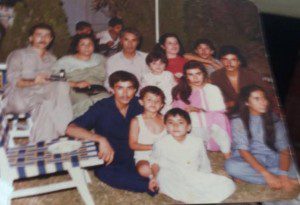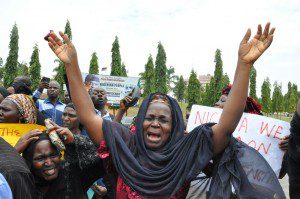
By Haris Tarin
It was 1984. The Russians had invaded Afghanistan, and the country was in the midst of a brutal war that destroyed cities, pillaged villages, killed hundreds of thousands of people and ruined millions of lives. My parents’ only concern was to get their six children out of the country so we could continue our education and pursue a better life, especially for their two daughters.
My father and three brothers left first to escape the brutality, leaving me — a five-year-old — to escape with my mother and two sisters. I remember vividly the strength with which my mother and two sisters smuggled me out of the country. I remember their bravery as we travelled through mountains and deserts in the darkness of night. I remember my mother’s embrace on camel back as we fled bombs and dodged bullets. I remember my sister’s fearless determination, which calmed my fears, as we escaped on the back of a mule.
I remember how it was three women who showed me the true meaning of courage as we spent two weeks escaping war and finding sanctuary in a small home in Pakistan. Those memories of the strength and intelligence of the women around me were permanently etched in my mind at the tender age of five. It did not stop there. It was my mom who taught me how to become a man when my father passed away early in my life. She was a mother, father, mentor and caretaker all with resounding belief in the power of her faith.
Why do I share this? I share this because when I see extremists in Nigeria kidnap more than 200 young girls from a school, or the Taliban shoot a thirteen-year-old girl because they seek to better their lives through education, I become infuriated by the stupidity and criminality of their thinking.
As I follow the news of those young Nigerian girls being held captive and threatened to be sold or married off and my faith is being used as a basis for their criminal action, I cannot help but think that something has gone utterly wrong. These criminal actions cannot be reconciled with Islam, a faith which was founded on the principle that “acquiring knowledge is an obligation for every man and woman.”
So as a man who was brought up by remarkable women and who today has strong women in my life, I say enough. Enough justification of criminality and medieval behavior against women in the name of my faith. Enough subjugation of women for cultural and political agendas in the name of my faith. Enough of me having to explain to my daughter that these actions do not represent the faith which she holds dear.
The illogical and antiquated justifications given by people like Abubakar Shekau, the senseless leader of Boko Haram, to diminish the role of women in public life must be challenged by mainstream scholarship and leadership. Although he flaunts the most extreme opinions on the role of women in society, many religious and political leaders, who are considered more mainstream, do hold views on this topic that do not coincide with the spirit and texts of Islam. These religious and political leaders are getting a pass from their followers.
 It is not enough that we merely condemn these actions and forget that they happened once the media coverage has passed. The international community must take action to ensure that the plight of women around the world, especially in areas of conflict, is not ignored. It is women who bear the brunt of violence in conflict zones such as Syria, Democratic Republic of Congo or Myanmar. Ensuring the well-being of women is no longer a just matter of human rights or charity. It impacts the security and stability of the international community.
It is not enough that we merely condemn these actions and forget that they happened once the media coverage has passed. The international community must take action to ensure that the plight of women around the world, especially in areas of conflict, is not ignored. It is women who bear the brunt of violence in conflict zones such as Syria, Democratic Republic of Congo or Myanmar. Ensuring the well-being of women is no longer a just matter of human rights or charity. It impacts the security and stability of the international community.
As I grapple with the reports that come out of Nigeria regarding the fate of the young women, I for one fully understand that those who had the biggest impact on my life were strong women, and I pray that those young girls will have the strength to resist the criminality of Boko Haram and their ideology.
Pondering on the journey my mother and sisters took me on as a young child, I am vividly reminded that in Nigeria and many other places in the world, it is women who are making the biggest sacrifices for the well-being of their families and societies. The young girls abducted by Boko Haram were not just educating themselves; rather they were empowering their societies and investing the future of their children and nation. It is proven beyond doubt that for every extra year of education for a female in primary or secondary school their quality of life and that of those around them becomes exponentially better.
I find solace in the fact that my daughter is growing up with strong role models around her, like her mother, and countless other women who are taking their rightful place in societies as scientists, entrepreneurs and leaders. All of our daughters around the world should have similar opportunities. This heinous act should be a wakeup call to all of us in positions of privilege and ability to work towards eradicating this perverted ideology and empowering communities to work towards positive change.
Haris Tarin is the Director of MPAC’s Washington DC office, is the author of Intro to Muslim America and Co-Author of Rethinking the Red Lines: Religious Freedom and Free Speech.












